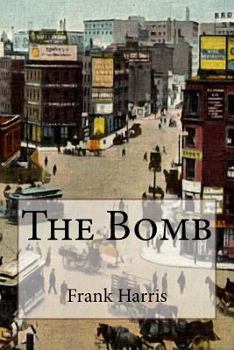The Bomb
Select Format
Select Condition 
Book Overview
First published in 1908, and last reprinted in 1962, this is a fictionalised account of the story of Rudolph Schnaubelt, the bomber who was never apprehended for the crime of killing seven policeman... This description may be from another edition of this product.
Format:Paperback
Language:English
ISBN:1540575233
ISBN13:9781540575234
Release Date:November 2016
Publisher:Createspace Independent Publishing Platform
Length:118 Pages
Weight:0.37 lbs.
Dimensions:0.3" x 6.0" x 9.0"













